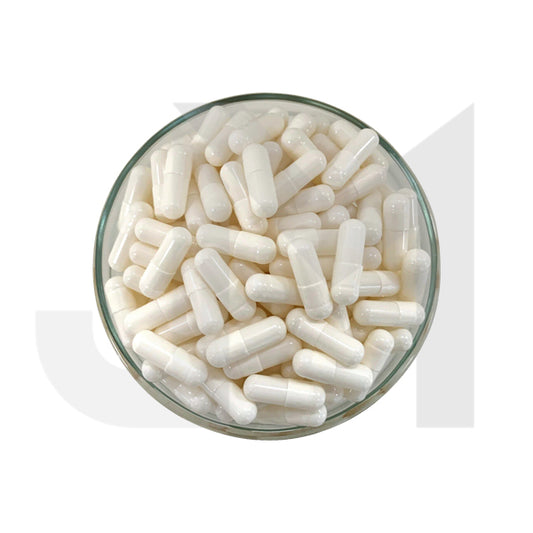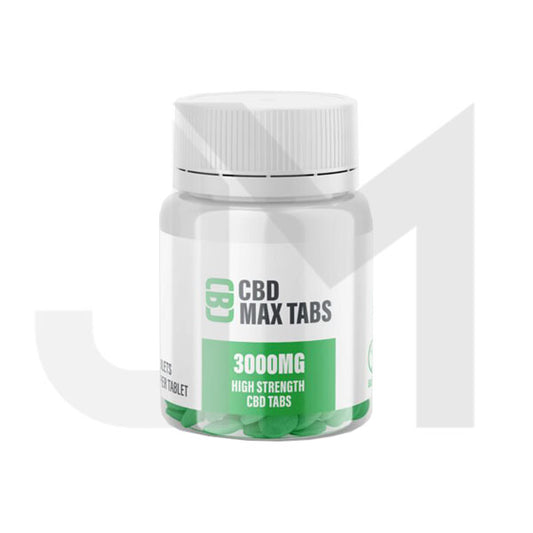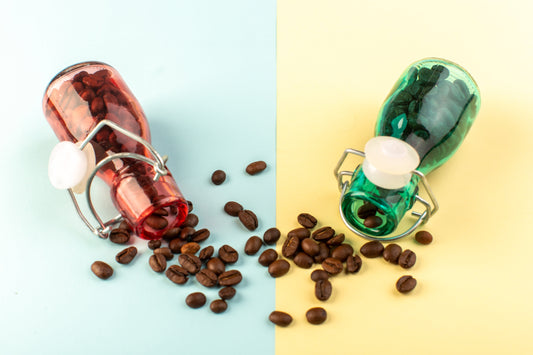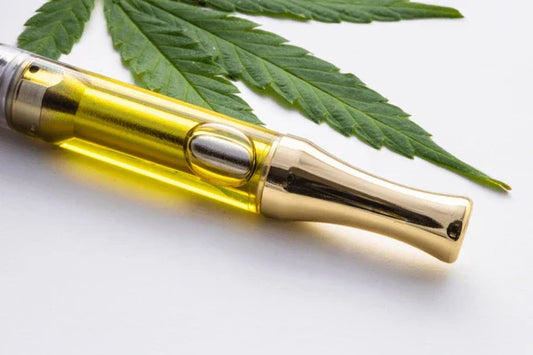-

Bulk Ginger & CBD Capsules Wholesale UK
This product is sold as a bulk, unbranded item and is not intended for direct consumer sale. As ...-50%Bulk Ginger & CBD Capsules Wholesale UK
This product is sold as a bulk, unbranded item and is not intended for direct consumer sale. As ...Login to view priceSale -

Purity 600mg Full-Spectrum High Potency CBD Capsules - 60 caps
Cold pressed CBD products are not subject to NF (novel food) regulations imposed by the FSA.SALE ...SALE OR RETURN GUARANTEEPurity 600mg Full-Spectrum High Potency CBD Capsules - 60 caps
Cold pressed CBD products are not subject to NF (novel food) regulations imposed by the FSA.SALE ...SALE OR RETURN GUARANTEELogin to view price -

Purity 1200mg Full-Spectrum High Potency CBD Capsules - 60 caps
Cold pressed CBD products are not subject to NF (novel food) regulations imposed by the FSA.SALE...SALE OR RETURN GUARANTEEPurity 1200mg Full-Spectrum High Potency CBD Capsules - 60 caps
Cold pressed CBD products are not subject to NF (novel food) regulations imposed by the FSA.SALE...SALE OR RETURN GUARANTEELogin to view price -

Hembiotic 5000mg Bulk Functional CBD Capsules - 200 Caps
Novel Food application number: RP438 SALE OR RETURN GUARANTEE available for this product!Return w...SALE OR RETURN GUARANTEEHembiotic 5000mg Bulk Functional CBD Capsules - 200 Caps
Novel Food application number: RP438 SALE OR RETURN GUARANTEE available for this product!Return w...SALE OR RETURN GUARANTEELogin to view price -

Hembiotic 750mg Functional CBD Capsules - 30 Caps
Novel Food application number: RP438 SALE OR RETURN GUARANTEE available for this product!Return w...SALE OR RETURN GUARANTEEHembiotic 750mg Functional CBD Capsules - 30 Caps
Novel Food application number: RP438 SALE OR RETURN GUARANTEE available for this product!Return w...SALE OR RETURN GUARANTEELogin to view price -

Nootrocan 900mg Full Spectrum CBD Nootropic Capsules - 60 Caps
Novel Food application number: RP438 SALE OR RETURN GUARANTEE available for this product!Return w...SALE OR RETURN GUARANTEENootrocan 900mg Full Spectrum CBD Nootropic Capsules - 60 Caps
Novel Food application number: RP438 SALE OR RETURN GUARANTEE available for this product!Return w...SALE OR RETURN GUARANTEELogin to view price -

Nootrocan 450mg Full Spectrum CBD Nootropic Capsules - 30 Caps
Novel Food application number: RP438 SALE OR RETURN GUARANTEE available for this product!Return w...SALE OR RETURN GUARANTEENootrocan 450mg Full Spectrum CBD Nootropic Capsules - 30 Caps
Novel Food application number: RP438 SALE OR RETURN GUARANTEE available for this product!Return w...SALE OR RETURN GUARANTEELogin to view price -

Vita Canna 1000mg Broad Spectrum Functional CBD Vegan Capsules - 50 Caps
Novel Food application number: RP438 SALE OR RETURN GUARANTEE available for this product!Return w...SALE OR RETURN GUARANTEEVita Canna 1000mg Broad Spectrum Functional CBD Vegan Capsules - 50 Caps
Novel Food application number: RP438 SALE OR RETURN GUARANTEE available for this product!Return w...SALE OR RETURN GUARANTEELogin to view price -

Vita Canna 500mg Broad Spectrum Functional CBD Vegan Capsules - 50 Caps
Novel Food application number: RP438 SALE OR RETURN GUARANTEE available for this product!Return w...SALE OR RETURN GUARANTEEVita Canna 500mg Broad Spectrum Functional CBD Vegan Capsules - 50 Caps
Novel Food application number: RP438 SALE OR RETURN GUARANTEE available for this product!Return w...SALE OR RETURN GUARANTEELogin to view price -

Why So CBD? 3600mg Broad Spectrum CBD Vegan Capsules - 60 Caps
Novel Food application number: RP438 SALE OR RETURN GUARANTEE available for this product!Return w...SALE OR RETURN GUARANTEEWhy So CBD? 3600mg Broad Spectrum CBD Vegan Capsules - 60 Caps
Novel Food application number: RP438 SALE OR RETURN GUARANTEE available for this product!Return w...SALE OR RETURN GUARANTEELogin to view price -

Why So CBD? 2400mg Broad Spectrum CBD Vegan Capsules - 60 Caps
Novel Food application number: RP438 SALE OR RETURN GUARANTEE available for this product!Return...SALE OR RETURN GUARANTEEWhy So CBD? 2400mg Broad Spectrum CBD Vegan Capsules - 60 Caps
Novel Food application number: RP438 SALE OR RETURN GUARANTEE available for this product!Return...SALE OR RETURN GUARANTEELogin to view price -

Why So CBD? 1200mg Broad Spectrum CBD Vegan Capsules - 60 Caps
Novel Food application number: RP438 SALE OR RETURN GUARANTEE available for this product!Return...SALE OR RETURN GUARANTEEWhy So CBD? 1200mg Broad Spectrum CBD Vegan Capsules - 60 Caps
Novel Food application number: RP438 SALE OR RETURN GUARANTEE available for this product!Return...SALE OR RETURN GUARANTEELogin to view price -

Why So CBD? 1800mg Broad Spectrum CBD Vegan Capsules - 30 Caps
Novel Food application number: RP438 SALE OR RETURN GUARANTEE available for this product!Return...SALE OR RETURN GUARANTEEWhy So CBD? 1800mg Broad Spectrum CBD Vegan Capsules - 30 Caps
Novel Food application number: RP438 SALE OR RETURN GUARANTEE available for this product!Return...SALE OR RETURN GUARANTEELogin to view price -

Why So CBD? 1200mg Broad Spectrum CBD Vegan Capsules - 30 Caps
Novel Food application number: RP438 SALE OR RETURN GUARANTEE available for this product!Return...SALE OR RETURN GUARANTEEWhy So CBD? 1200mg Broad Spectrum CBD Vegan Capsules - 30 Caps
Novel Food application number: RP438 SALE OR RETURN GUARANTEE available for this product!Return...SALE OR RETURN GUARANTEELogin to view price -

Why So CBD? 600mg Broad Spectrum CBD Vegan Capsules - 30 Caps
Novel Food application number: RP438 SALE OR RETURN GUARANTEE available for this product!Return...SALE OR RETURN GUARANTEEWhy So CBD? 600mg Broad Spectrum CBD Vegan Capsules - 30 Caps
Novel Food application number: RP438 SALE OR RETURN GUARANTEE available for this product!Return...SALE OR RETURN GUARANTEELogin to view price -

Dr Watson 600mg CBD Capsules - 30 Caps
Enhance your wellness routine with the Dr Watson 600mg CBD Capsules, a high-quality supplement th...Dr Watson 600mg CBD Capsules - 30 Caps
Enhance your wellness routine with the Dr Watson 600mg CBD Capsules, a high-quality supplement th...Login to view price -

CBD by British Cannabis 1000mg CBD 100% Cannabis Oral Capsules - 30 Caps
Novel Food application number: RP249 Providing a quick and easy-to-take method of taking CBD, the...CBD by British Cannabis 1000mg CBD 100% Cannabis Oral Capsules - 30 Caps
Novel Food application number: RP249 Providing a quick and easy-to-take method of taking CBD, the...Login to view price -

CBD Asylum 3000mg CBD Max Tablets - 100 Caps (BUY 1 GET 2 FREE)
Novel Food application number: RP349 Limited Time Offer: Buy 1 Get 2 Free Bringing maximum stren...BUY 1 GET 1 FREECBD Asylum 3000mg CBD Max Tablets - 100 Caps (BUY 1 GET 2 FREE)
Novel Food application number: RP349 Limited Time Offer: Buy 1 Get 2 Free Bringing maximum stren...Login to view price -

CBD by British Cannabis 300mg CBD 100% Cannabis Oral Capsules - 30 Caps
Novel Food application number: RP249 Providing a quick and easy-to-take method of taking CBD, the...CBD by British Cannabis 300mg CBD 100% Cannabis Oral Capsules - 30 Caps
Novel Food application number: RP249 Providing a quick and easy-to-take method of taking CBD, the...Login to view price -

Orange County CBD 900mg Full Spectrum CBD Capsules - 60 Caps
Novel Food application number: RP427 These Orange County soft-gel CBD oil capsules are bursting w...Orange County CBD 900mg Full Spectrum CBD Capsules - 60 Caps
Novel Food application number: RP427 These Orange County soft-gel CBD oil capsules are bursting w...Login to view price -

Orange County CBD 450mg Full Spectrum CBD Capsules - 30 Caps
Novel Food application number: RP427 Looking for a fast and simple way to get your daily dose of ...Orange County CBD 450mg Full Spectrum CBD Capsules - 30 Caps
Novel Food application number: RP427 Looking for a fast and simple way to get your daily dose of ...Login to view price -

Endoca 300mg CBD Capsules Hemp Oil - 30 Soft Gel's
Novel Food application number: RP795 Endoca are dedicated to producing the finest and purest qual...Endoca 300mg CBD Capsules Hemp Oil - 30 Soft Gel's
Novel Food application number: RP795 Endoca are dedicated to producing the finest and purest qual...Login to view price -

CBD Asylum Night Tablets 1000mg CBD 100 Tablets (BUY 1 GET 2 FREE)
Novel Food application number: RP349 Limited Time Offer: Buy 1 Get 2 Free CBD Night tabs contain ...BUY 1 GET 1 FREECBD Asylum Night Tablets 1000mg CBD 100 Tablets (BUY 1 GET 2 FREE)
Novel Food application number: RP349 Limited Time Offer: Buy 1 Get 2 Free CBD Night tabs contain ...Login to view price -

CBD Asylum Tablets 1000mg CBD 100 Tablets (BUY 1 GET 2 FREE)
Novel Food application number: RP349 Limited Time Offer: Buy 1 Get 2 Free A comprehensive range o...BUY 1 GET 1 FREECBD Asylum Tablets 1000mg CBD 100 Tablets (BUY 1 GET 2 FREE)
Novel Food application number: RP349 Limited Time Offer: Buy 1 Get 2 Free A comprehensive range o...Login to view price -

CBD Asylum 1500mg CBD Pro Tabs (BUY 1 GET 2 FREE)
Novel Food application number: RP349 Limited Time Offer: Buy 1 Get 2 Free Pro Tabs - for when ...BUY 1 GET 1 FREECBD Asylum 1500mg CBD Pro Tabs (BUY 1 GET 2 FREE)
Novel Food application number: RP349 Limited Time Offer: Buy 1 Get 2 Free Pro Tabs - for when ...Login to view price -

CBD by British Cannabis 300mg CBD Oral Capsules 30 Caps - Mind
Novel Food application number: RP249 These single dose CBD oral capsules are no ordinary cannabis...CBD by British Cannabis 300mg CBD Oral Capsules 30 Caps - Mind
Novel Food application number: RP249 These single dose CBD oral capsules are no ordinary cannabis...Login to view price -

Reakiro CBD Metabolism Boost Soft Gel Capsules 600mg - 60 Caps (BUY 1 GET 1 FREE)
Limited Time Offer: Buy 1 Get 1 Free Experience the powerful combination of CBD and metabolism-bo...BUY 1 GET 1 FREEReakiro CBD Metabolism Boost Soft Gel Capsules 600mg - 60 Caps (BUY 1 GET 1 FREE)
Limited Time Offer: Buy 1 Get 1 Free Experience the powerful combination of CBD and metabolism-bo...Login to view price -

CBD by British Cannabis 300mg CBD Oral Capsules 30 Caps - Relax
Novel Food application number: RP249 CBD by British Cannabis single dose CBD oral capsules are no...CBD by British Cannabis 300mg CBD Oral Capsules 30 Caps - Relax
Novel Food application number: RP249 CBD by British Cannabis single dose CBD oral capsules are no...Login to view price -

Orange County CBD 900mg Full Spectrum CBD Capsules - 30 Caps
Novel Food application number: RP427 Looking for a fast and simple way to get your daily dose of ...Orange County CBD 900mg Full Spectrum CBD Capsules - 30 Caps
Novel Food application number: RP427 Looking for a fast and simple way to get your daily dose of ...Login to view price -

Reakiro 1500mg Full Spectrum CBD Soft Gel Capsules - 60 Caps (BUY 1 GET 1 FREE)
Limited Time Offer: Buy 1 Get 1 Free Reakiro 1500mg Full Spectrum CBD Soft Gel Capsules are an ou...BUY 1 GET 1 FREEReakiro 1500mg Full Spectrum CBD Soft Gel Capsules - 60 Caps (BUY 1 GET 1 FREE)
Limited Time Offer: Buy 1 Get 1 Free Reakiro 1500mg Full Spectrum CBD Soft Gel Capsules are an ou...Login to view price -

Orange County CBD 3600mg Full Spectrum CBD Capsules - 60 Caps
Novel Food application number: RP427 These Orange County soft-gel CBD oil capsules are bursting w...Orange County CBD 3600mg Full Spectrum CBD Capsules - 60 Caps
Novel Food application number: RP427 These Orange County soft-gel CBD oil capsules are bursting w...Login to view price -

Reakiro 1500mg Full Spectrum CBD Soft Gel Capsules - 30 Caps (BUY 1 GET 1 FREE)
Limited Time Offer: Buy 1 Get 1 Free Reakiro 1500mg Full Spectrum CBD Soft Gel Capsules are a pre...BUY 1 GET 1 FREEReakiro 1500mg Full Spectrum CBD Soft Gel Capsules - 30 Caps (BUY 1 GET 1 FREE)
Limited Time Offer: Buy 1 Get 1 Free Reakiro 1500mg Full Spectrum CBD Soft Gel Capsules are a pre...Login to view price -

Reakiro 900mg CBD Full Spectrum Vegan Piperine Capsules - 60 Caps (BUY 1 GET 1 FREE)
Limited Time Offer: Buy 1 Get 1 Free Experience the power of CBD with Reakiro's 900mg Full Spectr...BUY 1 GET 1 FREEReakiro 900mg CBD Full Spectrum Vegan Piperine Capsules - 60 Caps (BUY 1 GET 1 FREE)
Limited Time Offer: Buy 1 Get 1 Free Experience the power of CBD with Reakiro's 900mg Full Spectr...Login to view price -

Reakiro 600mg CBD Full Spectrum Energy Boost Capsules - 60 Caps (BUY 1 GET 1 FREE)
Limited Time Offer: Buy 1 Get 1 Free Reakiro 600mg CBD Full Spectrum Energy Boost Capsules offer ...BUY 1 GET 1 FREEReakiro 600mg CBD Full Spectrum Energy Boost Capsules - 60 Caps (BUY 1 GET 1 FREE)
Limited Time Offer: Buy 1 Get 1 Free Reakiro 600mg CBD Full Spectrum Energy Boost Capsules offer ...Login to view price -

CBD by British Cannabis 300mg CBD Oral Capsules 30 Caps - Detox
Novel Food application number: RP249 These single dose CBD oral capsules are no ordinary cannabis...CBD by British Cannabis 300mg CBD Oral Capsules 30 Caps - Detox
Novel Food application number: RP249 These single dose CBD oral capsules are no ordinary cannabis...Login to view price -

Reakiro 600mg CBD Full Spectrum Omega 3 Capsules - 60 Caps (BUY 1 GET 1 FREE)
Limited Time Offer: Buy 1 Get 1 Free Experience the power of Reakiro's 600mg CBD Full Spectrum Om...BUY 1 GET 1 FREEReakiro 600mg CBD Full Spectrum Omega 3 Capsules - 60 Caps (BUY 1 GET 1 FREE)
Limited Time Offer: Buy 1 Get 1 Free Experience the power of Reakiro's 600mg CBD Full Spectrum Om...Login to view price -

Reakiro 600mg CBD Full Spectrum Immune Support Capsules - 60 Caps (BUY 1 GET 1 FREE)
Limited Time Offer: Buy 1 Get 1 Free Experience the potential of Reakiro 600mg CBD Full Spectrum ...BUY 1 GET 1 FREEReakiro 600mg CBD Full Spectrum Immune Support Capsules - 60 Caps (BUY 1 GET 1 FREE)
Limited Time Offer: Buy 1 Get 1 Free Experience the potential of Reakiro 600mg CBD Full Spectrum ...Login to view price -

CBD Brothers Blue Edition 750mg CBD/CBDA Vegan Capsules - 30 Caps
Novel Food application number: RP438 With these CBD Brothers Purple Edition CBD/CBDA Vegan Capsul...CBD Brothers Blue Edition 750mg CBD/CBDA Vegan Capsules - 30 Caps
Novel Food application number: RP438 With these CBD Brothers Purple Edition CBD/CBDA Vegan Capsul...Login to view price -

CBD by British Cannabis 300mg CBD Oral Capsules 30 Caps - Physio
Novel Food application number: RP249 CBD by British Cannabis single dose CBD oral capsules are no...CBD by British Cannabis 300mg CBD Oral Capsules 30 Caps - Physio
Novel Food application number: RP249 CBD by British Cannabis single dose CBD oral capsules are no...Login to view price -

Reakiro 450mg CBD Full Spectrum Vegan Piperine Capsules - 30 Caps (BUY 1 GET 1 FREE)
Limited Time Offer: Buy 1 Get 1 Free Experience the power of CBD with Reakiro's 450mg Full Spectr...BUY 1 GET 1 FREEReakiro 450mg CBD Full Spectrum Vegan Piperine Capsules - 30 Caps (BUY 1 GET 1 FREE)
Limited Time Offer: Buy 1 Get 1 Free Experience the power of CBD with Reakiro's 450mg Full Spectr...Login to view price
Wholesale CBD Capsules Q & A
What are CBD capsules?
CBD capsules are proving to be increasingly popular with consumers. As the name suggests, these capsules contain cannabidiol (CBD) and provide a way of delivering it to the body via the digestive system.
Is it better to take CBD oil or capsules?
These are two increasingly popular ways of taking CBD. Oil is dropped under the tongue whilst capsules are swallowed whole (with any suitable drink). The question as to which is best is highly subjective and mostly comes down to personal preference. Having said that, both have their pros and cons.
The advantages of CBD oil are that it can be good for those who don't like to swallow capsules, it tends to be higher strength than capsules and also more vegan-friendly (because many capsules contain gelatine). It also allows the user to more-easily experiment with different dosages. Additionally, it has a higher bioavailability than capsules - which essentially means it reaches the bloodstream more quickly than capsules. The potential downsides are that it may be harder to track how much has been taken, and that some people do not like the taste of the oil.
The advantages of CBD capsules are that they can disguise the taste (which not everyone likes), they are more like 'normal' supplements so can easily be added to daily routines, it is easy to take an exact dosage, and there is a wider choice available. The main potential downsides are that they are more expensive than oil and they are not suitable for people who have trouble swallowing tablets or capsules.
Do CBD capsules make you sleepy?
CBD capsules have a negligible THC concentration so they should not cause any excess drowsiness or sleepiness. Having said that, CBD is well-known for having a relaxing effect, reducing anxiety and boosting serotonin production so there is potential that if the user is already tired, they may then feel relaxed or 'chilled' enough to go to sleep. For this reason, some people who are struggling with sleep or insomnia may contemplate using CBD products before bedtime to help them get to sleep.
How many CBD capsules should you take in a day?
The amount of CBD that should be taken per day depends on a range of factors including (but not limited to) body weight, medical conditions, individual body chemistry, and the concentration of CBD in each capsule.
It is sensible to start with a smaller dose and gradually increase it until finding the optimal dose that provides effective relief. Capsules will come in predetermined strengths so it should be easy to keep track of how much is being taken.
What is the difference between full spectrum and broad spectrum CBD capsules?
The main difference between full spectrum and broad spectrum CBD capsules is to do with the compounds that they contain. Capsules that contain terpenes and other cannabinoids (including a very small trace of THC at 0.2% or lower) are regarded as full spectrum, whilst those that contain a range of compounds but are entirely free of THC are considered broad spectrum.
What are the benefits of CBD capsules compared to other CBD products?
CBD capsules offer a discreet, convenient, and precise way to consume cannabidiol, making them an appealing choice for many. Unlike oils or tinctures, capsules provide a pre-measured dose, ensuring consistency and eliminating the guesswork often associated with liquid forms. They are flavourless, avoiding the earthy taste of CBD, and integrate seamlessly into daily supplement routines. For those concerned about portability, capsules are compact and spill-proof, making them ideal for travel or on-the-go lifestyles. Additionally, CBD capsules cater to a broad range of needs with formulations that include full-spectrum, broad-spectrum, or CBD isolate options, offering a tailored approach to wellness.
How long does it take for CBD capsules to work?
The time it takes for CBD capsules to take effect can vary depending on individual metabolism, body weight, and digestive health. Generally, capsules must pass through the digestive system and liver before entering the bloodstream, which can take between 30 minutes to two hours. This delayed onset makes capsules a great option for those seeking sustained, gradual effects rather than immediate relief. For enhanced results, it's important to take capsules consistently and pair them with meals containing healthy fats, which can improve CBD absorption.
Are there vegan CBD capsules available?
Yes, vegan CBD capsules are widely available and are an excellent option for those adhering to plant-based lifestyles. Unlike traditional capsules made with gelatine, vegan versions use plant-based materials such as cellulose or pullulan, ensuring they are free from animal-derived ingredients. Many manufacturers also prioritise sustainability in their vegan product lines, aligning with eco-conscious consumer values. When browsing for vegan CBD capsules, it’s essential to check product labels or certifications to ensure they meet vegan standards.
How are CBD capsules made?
CBD capsules are made by extracting cannabidiol (CBD) from the hemp plant, which is then blended with a carrier oil or other ingredients depending on the product's formulation. After extraction, the CBD is carefully measured and placed inside capsules, which can be made from either gelatine or plant-based materials. This ensures each capsule contains a consistent dose of CBD, offering convenience and reliability for consumers. The capsules are then sealed and packaged for sale, often undergoing quality control processes to ensure safety and compliance with industry standards.
How long do the effects of CBD capsules last?
The duration of the effects from CBD capsules can vary based on individual factors such as metabolism, dosage, and the type of CBD used. On average, the effects of CBD capsules can last between 4 to 6 hours. Since the capsules are absorbed through the digestive system, they offer a more gradual and prolonged release of CBD compared to methods like vaping or tinctures. For sustained effects throughout the day, many users take CBD capsules in multiple doses, depending on their specific needs and lifestyle.
Are CBD capsules a good option for beginners?
CBD capsules are a great option for beginners, particularly those who prefer a simple and consistent way to take CBD. Capsules offer the advantage of pre-measured doses, making it easier for new users to control their intake. Since they don’t require any preparation, such as measuring or mixing, they are convenient and can be easily integrated into daily routines. For those who are just starting with CBD, it is advisable to begin with a lower dosage and gradually increase as needed, paying attention to how the body responds.























































